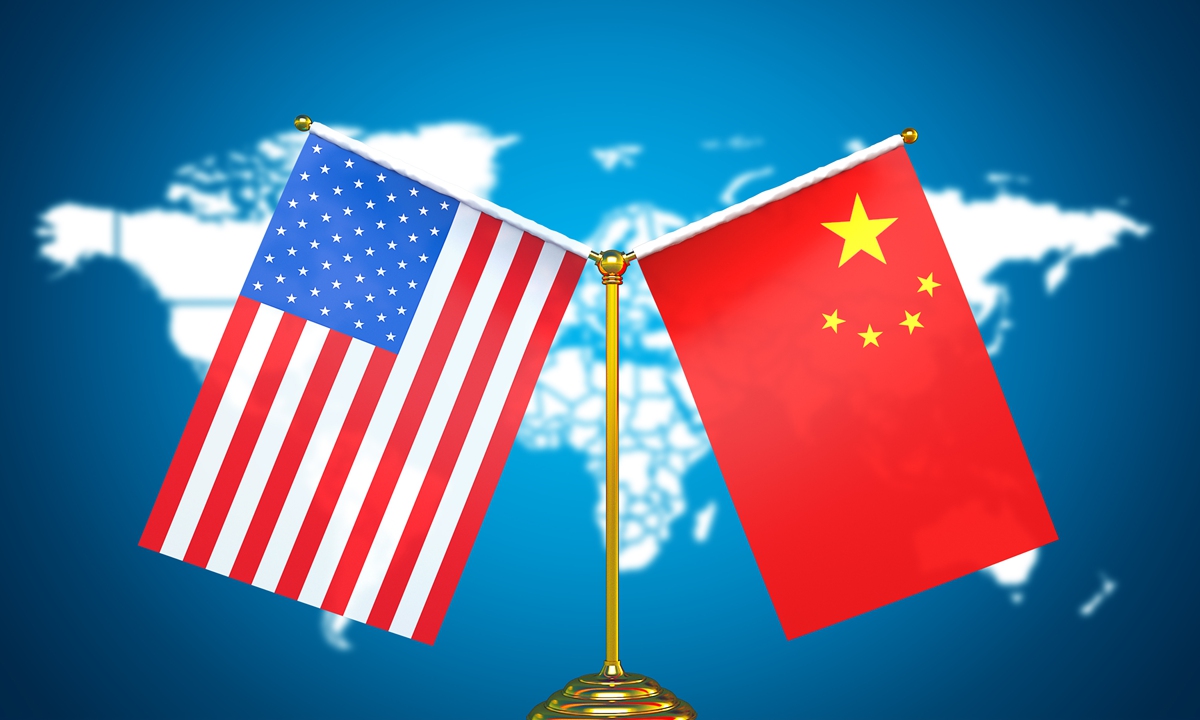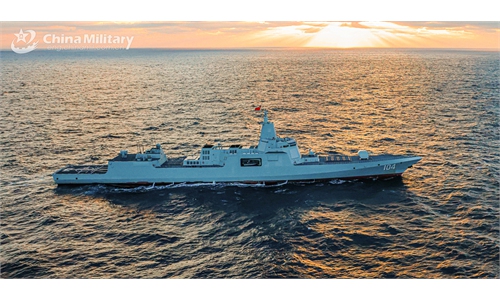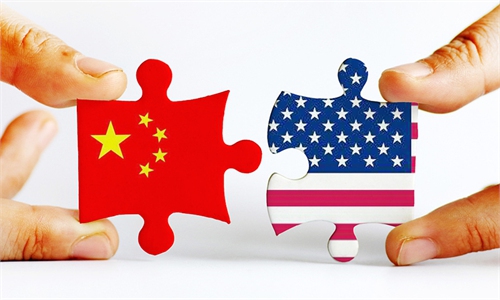Chinese, US military talks a 'positive signal,' but this is just the first step: Global Times editorial

China US Photo: VCG
General Liu Zhenli, a member of China's Central Military Commission (CMC) and chief of staff of the CMC Joint Staff Department, held a video meeting at the invitation of General Charles Q. Brown, chairman of the US Joint Chiefs of Staff, on Thursday. This is one of the important outcomes of the San Francisco meeting between the Chinese and US heads of state last month and the first high-level military dialogue between the two countries in almost one and a half years, drawing a great deal of global attention. The call was widely regarded as "substantive" and "a significant step in the relationship between two of the world's most powerful militaries," releasing "positive signals." It is not difficult to see that the world has high expectations for stable military relations between China and the US.
But behind the high expectations are people's concerns about the possibility of a minor incident that could spark a war or even an uncontrollable risk between China and the US, the two great powers. The cessation of high-level military exchanges between the two countries came about because then US House speaker Nancy Pelosi insisted on visiting the island of Taiwan despite China's strong objections. As the US military increases its close-in reconnaissance of China's southeastern coast and interference in the Taiwan Straits situation, the risk of direct military friction between China and the US has risen significantly, and Washington feels uneasy about this kind of development. We note that the Chinese side held the call at the US side's "invitation." But what is the fundamental purpose of military exchanges between the two countries? There is a difference in the two sides' perceptions, which requires Washington in particular to have a full understanding of the key points emphasized by Beijing during the exchanges.
During the call, Liu once again reiterated China's solemn position on the Taiwan question. The reason why China has repeatedly emphasized this matter to the US side is, first of all, of course, because it is at the core of China's core interests, and is the foundation of the political basis of China-US relations, and the first insurmountable red line in China-US relations. The Chinese military will not hesitate to fight to defend China's sovereignty and territorial integrity. Second, it is because the US side has never given enough respect to China's core interests and major concerns, which is the root cause of the danger. If Washington does not recognize this issue, then the risk of military confrontation between China and the US will always exist.
During this call, the Chinese side put forward a prerequisite for exchange and cooperation between the two militaries, which is "the basis of equality and mutual respect." We hope that the US side can understand this statement and comprehend what China means by "equality" and "respect." In short, whether it's to "avoid miscalculation" or "establish a guardrail," it is by no means a compromise or acceptance of one side's hegemony. It is also not about sacrificing one side's interests to satiate the appetite of the other. In fact, achieving this is quite simple - If the US stops arming the island of Taiwan and supporting the secessionist forces on the island, and if US military vessels and aircraft stay away from China's doorstep, refrain from stirring up trouble, and avoid crossing boundaries, many problems between the two militaries will likely cease to exist, and Washington will not need to demand "communication" with China in such an urgent manner.
The purpose of communication is to solve problems and to truly reduce the risk of military friction or even conflict between China and the US. The key lies in whether the US side is concerned about the formality of engaging in communication or the actual results. If it's the former, then China is not obligated to cooperate with the US' performance. If it's the latter, then the US side needs to take more concrete actions. China's policies in the military and diplomatic fields are clear and consistent, and there is never any concealment in each communication, leaving no room for misinterpretation by the US. The improvement and stabilization of China-US military relations require the US to change its behavior.
The China-US relationship is comprehensive, with the military aspect being just one part of it. At the very time when military officials from both China and the US were in communication, other US departments announced plans to impose tariffs on electric vehicles imported from China and investigate the use of Chinese chips in the US semiconductor supply chain and defense industrial base, while some members of the US Congress were devising legislation related to Taiwan. Additionally, the state of Florida introduced discriminatory laws targeting the Chinese community, and so on. In this kind of environment, it will be difficult to expect an improvement in China-US military relations. However, without moving forward, the overall China-US relationship remains under great pressure, creating tension globally. Ultimately, both China and the US need to effectively implement the consensus reached by the two heads of state, as it represents the greatest common interest between the two nations and is fundamentally in the US' interests as well. If the US side discounts the implementation and enforcement of this, it is, in fact, a betrayal of its own national interests.
In any case, the military relationship between China and the US has taken an important step forward, and this progress is worth cherishing. China is sincerely committed to stabilizing its military relationship with the US, and this commitment is reflected in tangible actions. The recent statements from the US aiming to meet China halfway are positive signals, but more importantly, Washington needs to demonstrate more substantial and concrete actions.


